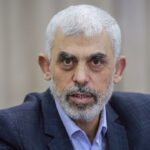Bhagwan Das (12 January 1869 – 18 September 1958) was an Indian Theosophist and public figure. For a time, he served in the Central Legislative Assembly of British India. He became allied with the Hindustani Culture Society and was active in opposing rioting as a form of protest.
Life and Career
Bhagwan Das was born on January 12, 1869, in Varanasi, India. He hailed from a learned family and received a traditional education in Sanskrit and Hindu scriptures. He later pursued his higher education in philosophy and law, completing his education from the Allahabad University.
Bhagwan Das was deeply influenced by the ideals of Mahatma Gandhi and became actively involved in the Indian freedom movement. He participated in various civil disobedience movements, protests, and activities aimed at achieving India’s independence from British colonial rule.
In addition to his contributions to the freedom movement, Bhagwan Das was also a committed social reformer. He worked tirelessly for the upliftment of marginalized sections of society and advocated for education and social justice. He was a vocal supporter of women’s rights and worked to eliminate various social evils prevalent at the time.
Bhagwan Das believed in the power of education to transform society. He established educational institutions that focused on providing quality education to all, regardless of caste, creed, or gender. His efforts in the field of education earned him a reputation as an advocate for educational reforms.
Bhagwan Das passed away on September 18, 1958. His legacy continues to inspire generations of Indians who value his contributions to both the freedom movement and social reform. His emphasis on education, equality, and justice remains relevant today, and his life’s work serves as a reminder of the importance of individual and collective efforts to bring about positive change.
Award and Legacy
Bhagwan Das received recognition and respect for his significant contributions to the Indian independence movement and social reform. While specific awards and honors might not be extensively documented, his impact on society and his role in shaping India’s path toward independence have been widely acknowledged. He was awarded the Bharat Ratna in 1955.
In conclusion, Bhagwan Das was a multifaceted individual who dedicated his life to the causes of freedom, education, and social justice. His efforts continue to influence and inspire people who strive for a better and more equitable society.
Observer Voice is the one stop site for National, International news, Editor’s Choice, Art/culture contents, Quotes and much more. We also cover historical contents. Historical contents includes World History, Indian History, and what happened today. The website also covers Entertainment across the India and World.










